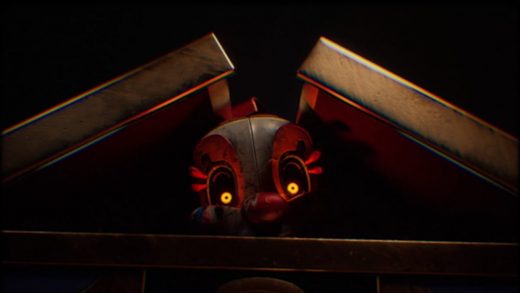:format(webp)/https://www.thestar.com/content/dam/thestar/entertainment/music/review/2023/06/30/review-herbie-hancock-in-top-form-in-jubilant-toronto-jazz-festival-show/herbie_hancock_2_.jpg)
Herbie Hancock
June 29 at Meridian Hall, Toronto
After two postponements due to COVID restrictions, Chicago jazz legend Herbie Hancock finally made it to Meridian Hall and the TD Toronto Jazz Festival on Thursday evening.
While the spry 83-year-old didn’t mention anything about his previous delays to the enthralled, sellout crowd of nearly 3,200, he did issue a warning.
“It’s going to start out really weird,” Hancock told them. “Buckle up!”
And with that, Hancock — seated at a Korg Kronos synthesizer with a grand piano within reach just behind him — launched into an avant-garde spatial territory with his trio that signalled an ultimate trip back in time to the ’70s, and visits to the funk and fusion era of the keyboardist’s extraordinary and prolific career.
Truthfully, until the music began with “Overture,” no one could really be sure what shape the 100-minute performance would take, as Hancock’s history — both with jazz and Toronto — has been a versatile one.
It’s been over 60 years since the 14-time Grammy and one-time Oscar winner was introduced as a leader with the album “Takin’ Off.” Since then, he has joined trailblazer trumpeter Miles Davis in one of his notable quintets as they transitioned from cool, modal jazz by introducing electronics into the mix; composed the jazz standards “Watermelon Man,” “Maiden Voyage” and “Chameleon”; explored jazz-funk with his popular band the Head Hunters; revisited more traditional jazz with V.S.O.P.; topped the Billboard dance charts in the early ’80s with “Rockit”; has performed George Gershwin’s “Rhapsody in Blue” with the Toronto Symphony Orchestra and recorded the Grammy-winning “Directions in Music: Live at Massey Hall” in 2001.
So, with a wide palate to choose from, Hancock largely stuck to his funk and fusion roots: long, lengthy jams that often had the maestro flitting back and forth between keyboards for whatever the occasion merited.
Actually, the Meridian Hall crowd was blessed with the presence of two superstars: accompanying Hancock on trumpet and keyboards was multiple Grammy-winning and Oscar-nominated New Orleans native Terence Blanchard, filmmaker Spike Lee’s go-to film composer, who gave us “A Tale of God’s Will (A Requiem for Katrina)” and, more recently, the score to the 2022 film “The Woman King” — composed, Hancock said, on the tour bus “while everyone else was sleeping.”
On this night, Blanchard served as sideman, feeding his trumpet through pedals so it sounded like a chorus of horns. Rounding out the lineup was bass player James Genus, who has performed and recorded with everyone from Don Pullen and Lee Konitz to Chick Corea and Daft Punk, and a fresh-faced young lion on the drum kit, Jaylen Petinaud.
“You’re going to be hearing a lot from him,” Hancock promised.
It was easy to see why, with Petinaud tastefully supplying a rhythmic backdrop that added its own nuance without any overstatement. Even his solos tended to favour intensity over showmanship, and the restraint signalled his propensity to be a team player rather than hog the spotlight.
The ensemble performed only a handful of songs, including Hancock’s former Miles Davis bandmate Wayne Shorter, who died just a few months ago and whom Hancock called his best friend. “Footprints” was dominated by Hancock’s lyrical accompaniment, which added a dimension of crispness to the long runs of arpeggios and accented chords that interchanged perfectly with Blanchard’s horn blasts, a combination of melodic and improv that leaned more toward brush strokes than elastic virtuosity.
Hancock and his crew were in top form all evening, displaying an enviable alchemy during “Actual Proof” from 1974’s “Thrust,” with the boss flitting between keyboards and bassist Genus providing a solid foundation of groove with Petinaud as he mouthed the notes he was playing on his four-stringed instrument.
There were a couple of surprises: Hancock sang “Come Running to Me,” from 1978’s “Sunlight,” although his voice was distorted by a vocoder. Ever the charming entertainer, he detoured off script to sing about how he was tired of making mistakes, but to do so was only human — and the audience giggled along with the joke.
He also pulled out his keytar — a synthesizer-guitar hybrid — to play the funky groove melody bass line of “Chameleon” before venturing off into solo land and, to be honest, we could have used a lot more of that fantastic ostinato riff than he meted out to us.
But beggars can’t be choosers: to be in the presence of one of music’s true innovators was a rare treat, and the music he performed was always jubilant, pulsing, and a strong blend of inside and outside that never alienated the adoring crowd that came to witness his genius.
Ending the show with a mighty leap with keytar in hand, the masterful Herbie Hancock then scampered off the stage with such vitality you could almost read the mind of his elated onlookers: they can hardly wait to hear what he’s going to come up with during his next 83 years.
JOIN THE CONVERSATION
does not endorse these opinions.


